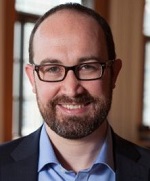It's no secret that pharma salespeople are barred at the doors of many doctors' offices. Those doors have been closing one by one for several years. But now, more than half of physician practices restrict reps' access--and in some specialties, only one in 5 doctors are rep-friendly.
Just three years ago, only 35% of U.S. physician practices put tight restrictions on pharma sales staff, according to the latest AccessMonitor report from pharma sales consultants at ZS Associates. As of this spring, it's 53%.
Some of the reasons are familiar: Teaching hospitals worry about the optics of pharma sales reps in their hallways. Doctors are pressed to see more patients per day than they did back when. But a major factor these days is consolidation among healthcare providers, which often puts physician practices under the control of big health systems. As part of that consolidation, doctors' practices cede control of policy-related decisions--such as access to reps--to their new owners.
The barriers are rising at a bad time for drugmakers intent on launching new products to make up for patent-cliff losses. Just as doors are closing, there's been a renaissance in drug approvals, with the FDA blessing record numbers of meds in the past few years. And though pharma marketers have adopted workarounds--such as digital detailing--face-to-face meetings are still the cornerstone of new drug launches.
 |
| ZS Associates' Malcolm Sturgis |
Mergers quickly cut off access to doctors in many cases, on top of the general restrictions already put on reps, said Malcolm Sturgis, who heads up ZS's AccessMonitor offering. Cities previously considered to be rep-friendly, such as St. Louis, MO, and Knoxville, TN, aren't so much anymore, thanks to a spate of provider consolidation. Across the board, "we found 19 out of 25 recent, major mergers corresponded with additional decreases in sales rep access within one year following the merger," Sturgis said in a statement.
Accessibility has flipped dramatically in specific therapeutic areas, too. Back in 2008, even the most restrictive specialty fields saw only 24% to 40% of doctors put up barriers to reps. That level of access would seem quite friendly to today's reps. In fact, some fields are full of obstacles now; in nephrology, for instance, only 19% of practices are considered accessible to reps, ZS figures show.
Oncology remains among the most restrictive specialties, continuing a recent trend. As ZS Managing Principal Pratap Khedkar points out, some 75% of cancer doctors were "rep-friendly" as recently as 2010, but now, almost three-fourths (73%) restrict access.
- read the ZS release
Special Reports: Top 10 pharma companies in social media